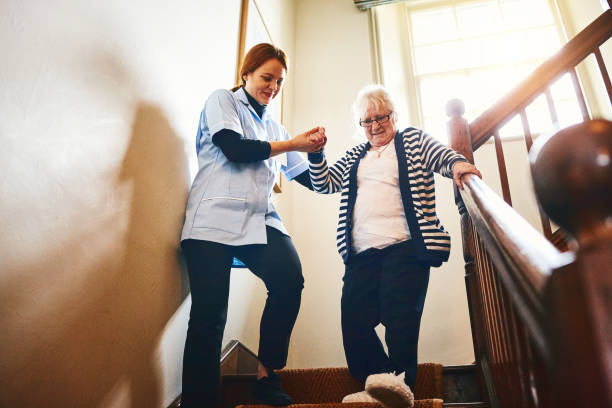What Is Disability Issues of Home Care
Home care is a vital service for people with disabilities. It allows them to live independently in their own homes, and to receive the care they need to maintain their health and well-being. However, there are a number of disability issues that can make home care challenging.
Attitudinal Barriers

One of the biggest challenges facing people with disabilities who need home care is attitudinal barriers. Some people still have negative attitudes towards people with disabilities, and this can make it difficult for them to access the care they need. For example, some people may assume that people with disabilities are not capable of taking care of themselves, or that they are a burden on society. This can lead to discrimination in the home care system, making it difficult for people with disabilities to find qualified caregivers.
Geographical Barriers
Another challenge facing people with disabilities who need home care is geographical barriers. In some areas, there is a shortage of home care providers, or the providers who are available may not be qualified to care for people with specific disabilities. This can make it difficult for people with disabilities to find the care they need in their own communities.
Financial Barriers
Home care can be expensive, and this can be a barrier for people with disabilities who do not have insurance or other financial resources. In some cases, the cost of home care can be so high that it forces people with disabilities to choose between paying for care and paying for other essential expenses, such as housing or food.
Communication Barriers
People with disabilities may also face communication barriers when accessing home care. For example, people who are deaf or hard of hearing may need a caregiver who is fluent in sign language. People who have difficulty speaking may need a caregiver who is able to communicate with them using alternative methods, such as writing or using a communication device.
Accessibility Barriers
Homes may also be inaccessible for people with disabilities. For example, homes that have narrow doorways or stairs may be difficult for people who use wheelchairs or other mobility devices. Homes that are not equipped with assistive technology, such as grab bars or raised toilet seats, may also be inaccessible.
How to Overcome Disability Issues in Home Care

There are a number of things that can be done to overcome disability issues in home care. These include:
- Educating the public about disability issues. This can help to reduce negative attitudes towards people with disabilities, and make it easier for them to access the care they need.
- Providing more funding for home care. This would help to make home care more affordable for people with disabilities, and would also help to increase the availability of qualified caregivers.
- Making homes more accessible. This could involve making modifications to homes, such as widening doorways or installing ramps. It could also involve providing assistive technology, such as grab bars or raised toilet seats.
- Ensuring that home care providers are trained to work with people with disabilities. This would help to ensure that people with disabilities receive the care they need in a safe and respectful manner.
By addressing these disability issues, we can make home care a more accessible and affordable option for people with disabilities. This would allow them to live independently in their own homes, and to receive the care they need to maintain their health and well-being.
In addition to the above, there are a number of other things that people with disabilities can do to advocate for themselves and ensure that they receive the best possible home care. These include:
- Knowing their rights. People with disabilities have a number of rights under the law, including the right to receive home care that is appropriate to their needs.
- Being an active participant in the care planning process. People with disabilities should be involved in all decisions about their care, including the selection of a caregiver and the development of a care plan.
- Communicating effectively with their caregivers. It is important for people with disabilities to communicate their needs and preferences to their caregivers. This will help to ensure that they receive the care they need in a way that is comfortable for them.
- Reporting any problems to their care provider or to a government agency. If people with disabilities have any problems with their home care, they should report them to their care provider or to a government agency. This will help to ensure that the problem is addressed and that other people with disabilities do not experience the same problem.
By advocating for themselves and working with their caregivers, people with disabilities can ensure that they receive the best possible home care. This will allow them to live independently in their own homes, and to maintain their health and well-being.
